Tax included and shipping calculated at checkout
A poisonous cocktail of glyphosate , heavy metals and fluoride all work to block the activity of magnesium and other essential trace elements.
As magnesium in particular is the essential electrolyte involved in mitochondrial metabolism of ATP, protein synthesis and enzyme activity, its deficiency is likely to be at the very root of this environmental toxic assault. Starved of energy, cells die. Over-exposure to glyphosate, heavy metals and fluoride may turn out to be the worst environmental disaster in human history contributing to the exponential rise of degenerative diseases like diabetes, renal failure, heart disease, cancer, auto-immune disorders, autism spectrum disorder, alzheimers, parkinsons, dementia and cancer.
How Did This Get so Bad?
In March 2015 the Agency for Research on Cancer, Lyon, France, a department of the World Health Organization, classified glyphosate (the active ingredient in Monsanto’s Roundup) as ‘probably carcinogenic to humans’. The evidence that glyphosate caused cancer in animals was considered ‘sufficient’ and the evidence concerning the genotoxicity of the product (ability to damage DNA) was considered ‘strong’. Various scientific studies have also shown the ability of glyphosate to induce genetic damage, oxidative stress in cells and damage to liver by inhibiting metabolic processes. [1]
Fast forward three years: In a ground-breaking decision on August 10, 2018, a court in California ordered Monsanto to pay US$289 million in damages to Dewayne Johnson, a school grounds keeper who had alleged Monsanto's glyphosate-based weed-killers, including Roundup, caused his cancer.
Lawyers are now scrambling to take advantage of this precedent to represent a large cohort of further damages claims. Bayer’s shares had plummeted in value following the announcement, as they had recently purchased Monsanto for a reported 63 billion dollars. Bayer may however not be so concerned about Monsanto’s legal woes, as they apparently intend to ditch the name Monsanto in the not-to-distant future. The acquisition of Monsanto’s assets will leave Bayer with a new global market dominance in control of nearly one third of the combined world market for seeds and pesticides.
That’s not all! Bayer also happens to have an extensive pharmaceutical division. Its parent company had a long history in the manufacture of drugs, including Aspirin and Heroin, in the early part of last century. They were also involved in the chemical experimentation on prisoners of war in Nazi Germany.
Modern Bayer’s current pharmaceuticals division now focuses on prescription products including cardiology and women’s health care products, as well as cancer treatments. Its non-prescription range includes products for dermatology, nutrition, digestive health and cardiovascular prevention. These products are attempting to deal with exactly the issues and symptoms that can result from chronic glyphosate exposure and accumulation. One has to wonder if this cosy revolving-door business model came about by chance or by design…
What Happened to the Food?
The original promise of genetically modified organism (GMO) technology was that use of toxic chemicals would be reduced. However just the opposite has happened. For example, in 2002, the use of glyphosates on GMO soybean increased by 21%; and in 2011 farmers who cultivated corn, soya and cotton GMP crops used 24% more glyphosate than those who grew the same, but non-GMP varieties. [1]
In addition to spraying on GMP crops, glyphosate is also extensively used as a desiccating agent before harvest of non-GMO crops such as wheat, rye, barley, lentils, citrus and sweet potatoes to drench and dry down the crop, making the harvest easier. Our agricultural animals are also fed a substantial amount of these glyphosate-tainted crops. More studies need to be done to measure residues in meats. Once glyphosate was introduced into water and staple crops, it became ubiquitous in the food supply over the years as an invisible and sinister cellular intruder.


Environmental Working Group (EWG) found in their lab tests that 31 of 45 samples of conventionally grown oats had 160 ppb or more of glyphosate, thereby exceeding EWG’s health risk benchmark. Some organic products even had traces of glyphosate, but below the limits. This contamination of organic crops is because glyphosate residues can drift in wind, as well as be carried by birds and bees.
A glyphosate review published by an Italian University in March 2018 summarised the evidence as, “Glyphosate is the most sprayed and distributed chemical substance in human history [1-7]. Therefore, over the years of its use a global contamination has occurred, which has not only affected the soil, but also the surface and underground waters, the atmosphere and even food and objects of common use such as diapers, medical gauze and absorbents for female intimate hygiene – all materials in which glyphosate has been found in significant quantities [8].” [1]
Yes, you heard right girls. That means your tampons and menstrual pads. Is nothing sacred?
To add insult to injury, glyphosate is made more toxic within the Roundup formula due to adjuvants that help it penetrate plant membranes – which also end up penetrating human membranes and barriers. We can breathe it in, we can absorb it through the skin and we can consume it via food supply.
The review goes on to explain glyphosate’s mechanism of toxic action. Firstly, it is a strong chelating agent, creating complexes that immobilize the mineral micronutrients of the soil, such as magnesium, calcium, iron, manganese, nickel and zinc, making them unavailable to plants. This means that the food supply is robbed of vital mineral nutrients. We eat the food, it fills a void, but it doesn’t supply valuable nutrition. The end result is that we keep eating more and more empty carbs until obesity and other metabolic diseases such as hypertension, diabetes, senile dementia, inflammatory bowel disease, renal failure, thyroid or liver cancer develop.
Celiac Disease, Gluten Intolerance and the Shikimate Pathway
Celiac disease and gluten intolerance is characterised by symptoms of nausea, diarrhoea, skin rashes, macrocytic anaemia and depression. In their ground-breaking research into celiac disease and gluten intolerance, scientists Anthony Samsel and Stephanie Seneff reported an associated pathology of inflammatory response in the upper small intestine, leading to a flattening of the microvilli, impairing their ability and important role of absorbing nutrients. Furthermore, undiagnosed celiac disease is associated with a 4-fold increased risk of death, mostly due to increased cancer risk. [2]
In Monsanto’s own studies, soybeans showed a seven-fold increase of trypsin inhibitor which, if eaten, would give a patient gas and bloating. Gut dysbiosis and gluten intolerance are notably common bio-markers in Autism Spectrum Disorders (ASD) and other mental health issues. [3] Seneff also published a graph linking the incidence of autism growing in line with growth in the use of glyphosate.
The severity of glyphosate damage to living organisms is expressed via its disruption and inhibition of the Shikimate enzyme pathway in bacteria and plants – a pathway human cells (apparently) don’t have. It was promoted by Monsanto that this was the reason humans would be immune to the toxic effects of Glyphosate. However it turns out that nothing could be further from the truth.
Humans depend on beneficial bacteria (which respire using the Shikimate enzyme pathway) for digestion and absorption of nutrients, synthesis of vitamins (including B12), detoxifying harmful chemicals, improving intestinal permeability and increasing the defences of the immune system. If this system is choked via blocking of respiration and metabolism, the bacteria die and the gut can become victim to overgrowth of pathogenic bacteria that are more resilient to the effects of glyphosate.
Toxic Bacteria Can Influence Central Nervous System, Cardiovascular System, Lungs, Kidney and Liver
Samsel and Seneff have documented evidence of pathogenic overgrowth and intestinal infections resulting from glyphosate exposure in poultry, cattle and swine. They note that, “Salmonella and Clostridium are highly resistant to glyphosate, whereas Enterococcus, Bifidobacteria and Lactobacillus are especially susceptible.”[2] A similar gut dysbiosis occurs on those with Celiac disease and leaky gut because pathogenic bacteria produce acidic by-products which eat holes into the intestinal lining.
If the gut lining is compromised, toxins can penetrate the interior of the body, blood circulation and brain, causing inflammatory responses. A particularly nasty metabolite is called p-Cresol; “produced via anaerobic metabolism of tyrosine by pathogenic bacteria such as Clostridium difficile (D’Ari and Barker, 1985). It is a highly toxic carcinogen, which causes adverse effects on the central nervous system, the cardiovascular system, lungs, kidney and liver (Kelly et al, 1994).” [2]
ATP Energy Production Suffocated by Glyphosate
From the chloroplasts in plants that photosynthesise and turn sunlight into starches (stored energy) to the mitochondria of human cells that convert that stored energy into electrical energy, these pathways of ATP energy metabolism are reliant on enzyme activity. As enzymes are proteins and protein synthesis relies on availability of magnesium, enzyme activity requires magnesium. Glyphosate binds up and blocks the activity of magnesium.
“Most cellular ATP is utilized in protein synthesis via tRNA aminoacylation and GTP regeneration. Magnesium (Mg2+), the most common divalent cation in living cells, plays crucial roles in protein synthesis by maintaining the structure of ribosomes, participating in the biochemistry of translation initiation and functioning as a counter-ion for ATP.”[4]
Plant chloroplasts contain chlorophyll – the green pigment that absorbs sunlight. The chlorophyll molecule has magnesium at its centre because magnesium is intimately involved in conductivity of electrons (electrical energy flow). In the process of photosynthesis (photophosphorylation), the energy of sunlight is used to create a high-energy electron donor and an electron acceptor. This moves electrons along an Electron Transport Chain (ETC) using water and CO2, which then creates an attractive force via a proton gradient (pump) across a membrane, resulting in energy and oxygen by-products. The energy surplus is converted to starches.

The use of an electron transport chain to generate adenosine triphosphate (ATP) in plant mitochondria, like the mitochondria of most other eukaryotes, also produces reactive oxygen species (ROS), which is an oxidant (acidic by-product and electron stealer). Oxidants need to be neutralised by anti-oxidants (electron donors) to restore pH balance, otherwise the acids can cause cell damage. Glyphosate is an electron-stealer and promoter of acidosis and oxygen starvation (hypoxia).
Gomes et al in 2016 found in their study, “In addition to interfering with the shikimate pathway, glyphosate can induce oxidative stress in plants through H2O2 formation by targeting the mitochondrial Electron Transport Chain, which would explain its observed effects on non-target organisms.” [5]
Bacteria and mitochondria also use cytochromes containing heme protein (red pigment from iron) to shunt electrons in a variety of Electron Transport Chain configurations for respiration. Heme has an affinity for oxygen binding and transport. To produce energy, cytochromes shunt electrons along the chain to the oxygen (which was a by-product from plant respiration) and end up with water and CO2.
The most energy is produced when oxygen is available, however in anaerobic environments, different electron acceptors are used including nitrate, nitrite, ferric iron, sulphate, carbon dioxide, and small organic molecules such as fumarate.
ATP Energy Metabolism Needs Magnesium
Proton pumps are the heart of the electron transport process. They produce the transmembrane electrochemical gradient that enables ATP Synthase to synthesize ATP (electrical energy currency). ATP Synthase is an enzyme requiring magnesium support. In fact, if not enough magnesium is available, ATP production is limited in order to compensate and re-balance with the amount of available magnesium in cell stores. [4]

Animal cell and mitochondrial membranes are made up of a phospholipid bilayer containing the lipid soluble Ubiquinone (also called CoQ 10 enzyme) which helps move electrons and protons across the membrane to produce energy (ATP). Magnesium is needed to support CoQ10 enzyme activity, as well as by mitochondria in the making of ATP. Without enough magnesium, ATP production slows because ATP without magnesium can become toxic.
The mitochondria are particularly vulnerable to oxidative stress. They need a lot of antioxidant support in order to neutralise the acids of metabolism by-products such as Reactive Oxygen Species (ROS). Heavy metals and xenobiotic chemicals like glyphosate can interfere and inhibit the anti-oxidant process so that pH and energy metabolism of the cell drops, causing degeneration. Note that magnesium can act directly as an antioxidant (electron donor), as well as to support protein synthesis and enzyme activity as part of mitochondrial ATP energy production.
To help defend cells and their mitochondria it is not only important to avoid exposures to these chemical disruptors, but also to ensure absorption of higher levels of magnesium and antioxidants through diet and lifestyle. This supports both energy production and detoxification systems.
According to Turrens et al, “The delicate balance between antioxidant defences and ROS production may be disrupted by either deficient antioxidant defences, inhibition of electron flow or exposure to xenobiotics. This imbalance appears as a common denominator in various pathological processes in which the resulting oxidative insult causes tissue damage and, eventually, cell death.” [6]
Important detoxification enzymes are disrupted by Glyphosate, such as Glutathione and CYP P450. Problems with the activity of these enzymes are strongly associated with autism spectrum disorders, mental illness, auto-immune disorders, celiac disease, heart disease, diabetes and cancer. All of these conditions have in common heightened inflammatory responses, accumulation of waste products and acidosis leading to cell energy starvation and dysfunctional detoxification systems, blocked by heavy metals like aluminium together with chemicals like glyphosate and fluoride.
Glutathione Detoxification Enzyme for pH Balance – Hindered by Glyphosate and Heavy Metals
Glutathione (GSH) is a powerful antioxidant fat-soluble enzyme used by the liver in detoxification to neutralise free radicals and prevent cellular damage. The three sulphur-containing amino acids - glutamine, glycine and cysteine - used by the body to make glutathione, are also a vulnerable target for heavy metals. When the body is overloaded with toxic metals there are not enough of the sulphur-containing amino acids available to make glutathione. In other words, the toxic metals block the body’s ability to detoxify.
Magnesium is required to produce glutathione, as glutathione is a protein. Glutathione is found in every cell, but more commonly in liver cells, as the liver is the main detoxification organ and has to do most of the heavy lifting.

GSH is thought to participate in the detoxification of acidic metabolism by-products, as well as inflammatory acidic by-products such as reactive oxygen species (ROS), including those produced by the action of another detoxification enzyme - cytochrome P-450.
It is shown that GSH transferase B inhibits lipid peroxidation (ie, acidification). GSH is important for pH balance and neutralisation of acids in order to maintain our ‘good’ cholesterol – HDL (high density lipoprotein).
As the brain is largely composed of cholesterol fats it also needs all the help it can get to detoxify. Scientists have found that sulphur amino acid deficiency, which are the precursors to production of glutathione enzyme, depresses the brain glutathione level. [7] This makes it harder for the brain to eliminate waste products and chemical toxins.
CYP P450 Detoxification Enzyme for Elimination of Toxins – Suppressed by Glyphosate
Glyphosate inhibits cytochrome P450 enzymes (CYP), which are involved with cleaning up and eliminating environmental toxins, activating vitamin D3, catabolizing vitamins and maintaining bile-acid production for digestion and sulphate supplies to the gut.
Cytochrome P450 proteins, named for the absorption band at 450 nm of their carbon-monoxide-bound form, are one of the largest superfamilies of enzyme proteins. The P450 genes (also called CYP) are found in the genomes of virtually all organisms, but their number has exploded in plants.[8]
They are involved in energy metabolism and used in plants and humans against chemical assault and contribute to vital processes such as carbon source assimilation, biosynthesis of hormones and structural components of living organisms, as well as carcinogenesis and degradation and elimination of xenobiotics (ie, toxins).
Sleep Disorder, Anaemia and Brain Hypoxia Caused by Glyphosate
According to Seneff et al, the combination of aluminium and glyphosate, the main active ingredients in Roundup, has a synergistically more virulent toxic effect on the brain and pineal gland. This interferes with the production of tryptophan and subsequently melatonin, a powerful brain antioxidant produced during deep sleep.
“Glyphosate chelates aluminum, allowing ingested aluminum to bypass the gut barrier. This leads to anemia-induced hypoxia, promoting neurotoxicity and damaging the pineal gland. Both glyphosate and aluminum disrupt cytochrome P450 enzymes, which are involved in melatonin metabolism. Furthermore, melatonin is derived from tryptophan, whose synthesis in plants and microbes is blocked by glyphosate.” [9]
Toxic Synergy of Fluoride, Heavy Metals and Glyphosate
Fluoride also has an affinity for heavy metals including aluminium. In fact the fluoridated water flowing through pipes corrodes and can pick up aluminium and other metals from fittings during its transit to your kitchen tap. Not only that, but the fluoride chemicals commonly used in water fluoridation are derived from industrial chimney wastes and contain aluminium, lead, mercury and other heavy metals.
The phosphate fertilizer industry is the biggest producer of fluoride wastes used in water fluoridation, as fluoride is a major component in phosphate rock that is mined. Therefore, the phosphate fertilizers themselves contain a significant amount of fluoride, which can be taken up by plants from soils. Black tea is particularly good at taking up fluoride in the leaves. Many researchers have speculated that the combination of aluminium and fluoride has led to an epidemic in brain disorders including Alzheimers, Parkinsons and Dementia.
Fluoride blocks and binds up magnesium, literally stealing it from your cells. Fluoride toxicity mimics magnesium deficiency symptoms – including the development of hypercalcemia where calcium deposits excessively in soft tissue (including arterial lining) and joints. Fluoride is a calcium attractor via its inhibition of magnesium, as magnesium controls the calcium ion channels. Low magnesium means that calcium is free to block your tubes.

Fluoride is a poison and neurotoxin which inhibits cell respiration and enzyme activity – like glyphosate! Reports from China, India, and Iran have found that children in high fluoride areas had significantly lower Intelligence Quotient (IQ) compared to children in low fluoride areas (Seraj 2006; Tang 2008; Trivedi 2007).
Fluoride exposure causes neurochemical and biochemical changes in the brains of laboratory animals (Li 2003; NRC 2006). Fluoride also increases the production of free radicals in the brain (Chouhan 2008; Zhang 2007; Zhang 2008). Studies of rats exposed to fluoride compounds reported distortions of brain cells and neuronal deformations, and neurodegeneration (Bhatnagar 2002; Shivashankara 2002; Varner 2002). These neurobiological effects are associated with developmental delays, behavioural problems, and possibly dementia in late adulthood (NRC 2006).
Both glyphosate and fluoride bind up and inhibit magnesium – thereby inhibiting enzyme activity and cell respiration. If you are drinking fluoridated water or beverages and eating foods tainted with glyphosate it is a very dangerous combination leading to the build-up of a toxic metal cocktail, which stifles energy production, causing degeneration and cell death.
Mineral Ion Imbalance and Liver Damage
According to Juan Tang et al, mineral ion imbalance is involved in the oxidative damage to liver caused by glyphosate exposure.
“These results suggested that glyphosate caused obvious damage to rats' liver and caused various mineral elements content imbalances in various organs of rats. Ion imbalance could weaken antioxidant capacity.” [10]
 Magnesium and Chloride – Essential for Shikimate Metabolism
Magnesium and Chloride – Essential for Shikimate Metabolism
The seven enzymes of the Shikimate metabolic pathway in bacteria, fungi and plants are dependent on magnesium and chloride ions. “Magnesium influences the conformation of the shikimate hydroxyl groups and the position of the side chains of some of the residues of the active site. Chloride seems to influence the affinity of ADP and its position in the active site and the opening length of the LID domain.” [11]
This is supported by another study which demonstrated that magnesium is essential for the gut microbiome and that a magnesium-restricted diet induces anxiety and depressive-like behaviour in humans and rodents. [12]
Supporting the Body to Defend Against Toxic Chemicals
The contamination of our environment and food supply by glyphosate working synergistically with heavy metals like aluminium and chemicals like fluoride, could turn out to be the worst environmental disaster in the history of humanity (that was self-inflicted).
Although we cannot realistically avoid all possible exposures to glyphosate, fluoride and heavy metals, as they are now so ubiquitous in the environment and food supply (unlabelled), we can do our best to avoid GMP crops which are certain to contain glyphosate and we can purchase (or grow) organic foods wherever possible. Make sure to read ingredients of any brand of herbicide if you intend to use one in your garden or lawns because many of them can contain glyphosate.
We can also get a fluoride filter (reverse osmosis or ion-exchange), but make sue to add the electrolytes back into the water to re-mineralise and alkalise. If you have a calcium filter additive then add extra magnesium chloride salts to counteract the calcium, as calcium in oversupply can inhibit magnesium’s work.
Finally, eat fresh foods (preferably organic) and avoid package foods which usually contain chemical preservatives and additives. Over-processing also leads to magnesium loss in the food. Transdermal magnesium can give you a big boost to magnesium levels as it is easier to absorb larger amounts of magnesium via skin compared to taking oral tablets and powders, which are hard to digest and absorb through the gut wall. You can feel a tangible fast result with Magnesium Cream, Magnesium Charge Lotion, Magnesium Oil Spritz and Magnesium Chloride Flakes soaking. RELAX! There is a way to recover... More information is at www.elektramagnesium.com.au

By Sandy Sanderson © 2018
REFERENCES
- Torretta, V., et al., Critical Review of the Effects of Glyphosate Exposure to the Environment and Humans through the Food Supply Chain. Sustainability, 2018. 10(4): p. 950.
2. Samsel, A. and S. Seneff, Glyphosate, pathways to modern diseases II: Celiac sprue and gluten intolerance. Interdiscip Toxicol, 2013. 6(4): p. 159-84.
3. Goldani, A.A.S., et al., Biomarkers in Autism. Frontiers in Psychiatry, 2014. 5: p. 100.
4. Pontes, M.H., A. Sevostyanova, and E.A. Groisman, When too much ATP is bad for protein synthesis. Journal of molecular biology, 2015. 427(16): p. 2586-2594.
5. Gomes, M.P. and P. Juneau, Oxidative stress in duckweed (Lemna minor L.) induced by glyphosate: Is the mitochondrial electron transport chain a target of this herbicide? Environmental Pollution, 2016. 218: p. 402-409.
6. Turrens, J.F., Mitochondrial formation of reactive oxygen species. The Journal of Physiology, 2003. 552(Pt 2): p. 335-344.
7. Paterson, P.G., et al., Sulfur amino acid deficiency depresses brain glutathione concentration. Nutr Neurosci, 2001. 4(3): p. 213-22.
8. Werck-Reichhart, D. and R. Feyereisen, Cytochromes P450: a success story. Genome Biology, 2000. 1(6): p. reviews3003.1-reviews3003.9.
9. Seneff, S., N. Swanson, and C. Li, Aluminum and Glyphosate Can Synergisti-cally Induce Pineal Gland Pathology: Con-nection to Gut Dysbiosis and Neurological Disease. Vol. 06. 2015. 42-70.
10. Tang, J., et al., Ion Imbalance Is Involved in the Mechanisms of Liver Oxidative Damage in Rats Exposed to Glyphosate. Frontiers in Physiology, 2017. 8: p. 1083.
11. Dias, M.V., et al., Effects of the magnesium and chloride ions and shikimate on the structure of shikimate kinase from Mycobacterium tuberculosis. Acta Crystallogr Sect F Struct Biol Cryst Commun, 2007. 63(Pt 1): p. 1-6.
12. Winther, G., et al., Dietary magnesium deficiency alters gut microbiota and leads to depressive-like behaviour. Acta Neuropsychiatr, 2015. 27(3): p. 168-76.
By Sandy Sanderson









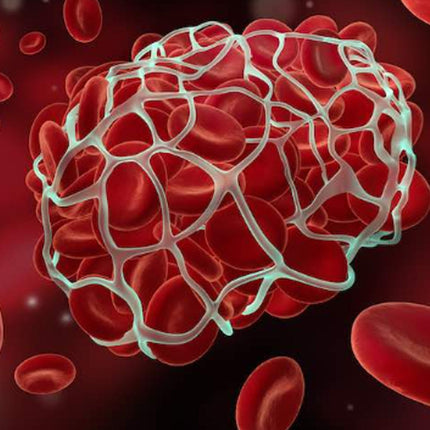
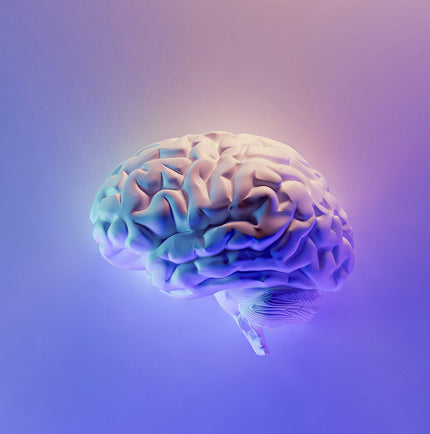

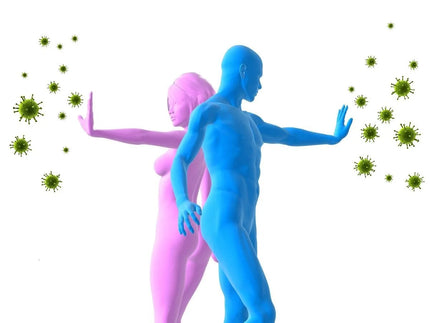


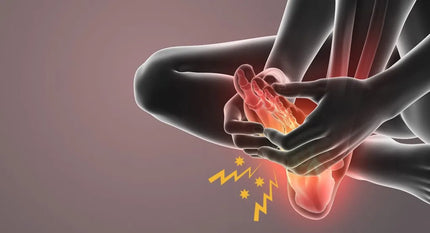



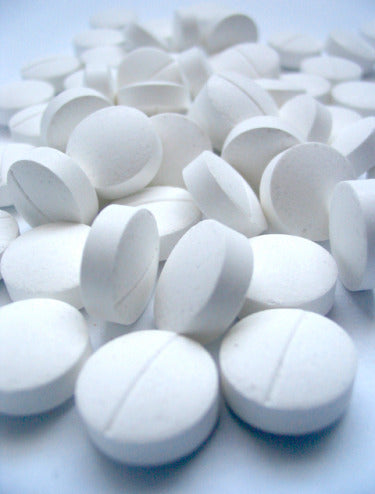










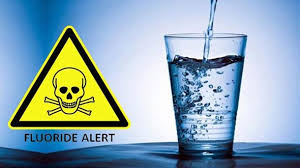

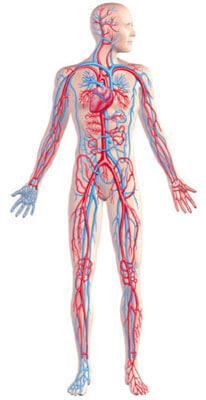



















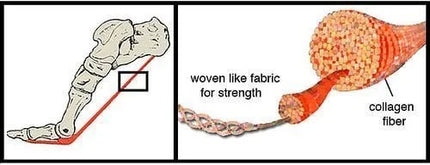
1 comments
this is not a peer reviewed submission. It is a sales pitch based on unsupported claims, not science. Just like wakefield’s “study” or anything spouted by RFK